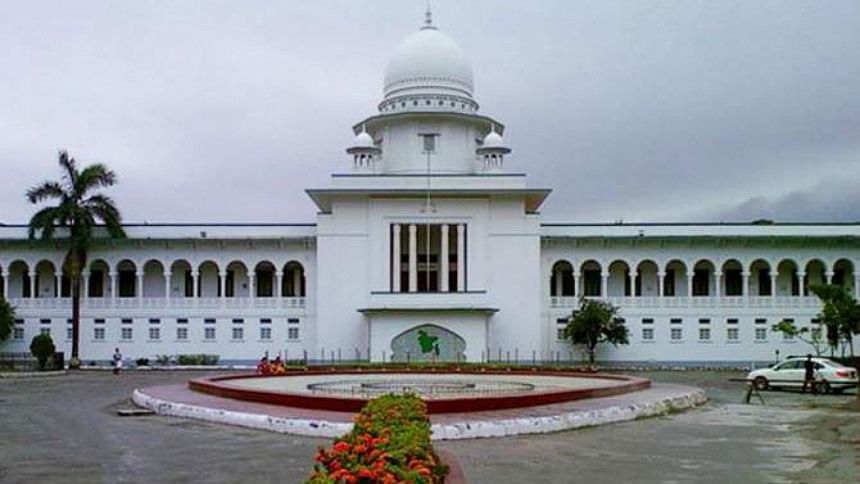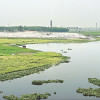ETP in Savar: HC orders 24-hr operation to save Dhaleshwari river

The High Court yesterday directed the authorities to operate 24 hours every day two modules of central effluent treatment plant (ETP) treating waste at the tannery estate in Savar to prevent pollution of the Dhaleshwari River.
In that, Bangladesh Small and Cottage Industries Corporation (BSCIC) will have to monitor whether the modules are in operation round the clock and ensure that tanners use separate pipes to discharge chromium and other waste materials, the court said.
It also directed the tanners to install salt treatment module in the ETP within a month.
A bench of Justice Syed Refaat Ahmed and Justice Md Salim passed the orders following a petition recently filed by Bangladesh Environmental Lawyers' Association (Bela).
Bela's Chief Executive Syeda Rizwana Hasan told The Daily Star two of four modules of the central ETP had already been set up while another module was supposed to be completed by yesterday.
One module is yet to be connected to the electric supply line. The HC asked the authorities to make an alternative power supply arrangement to operate the module for now, Rizwana said.
The HC asked the BSCIC and the industries ministry to submit a report by October 5 upon implementing the directives. A further court order will come on the issue on October 10 as fixed by the court.
Advocate Rizwana also said Chinese firm -- Jiangsu Lingzhi Environmental Protection Co Ltd -- that had constructed the ETP told the HC it was not operating the modules 24 hours a day as its workers would become sick if they overworked.
In its petition, Bela said the Chinese firm according to its contract with the BSCIC was bound to run non-stop waste treatment operations through the central ETP, a common chrome recovery unit, a sewage treatment plant, and a chloride and solid waste management system in the industrial area.
Apart from not running the ETP 24 hours, the firm has been dumping untreated effluent into the Dhaleshwari.
The petitioner also said the Department of Environment in five reports prepared between December 2016 and April 2017 wrote that the Savar tannery industrial area had been releasing an excessive amount of pollutants into the river. As a result, the river runs the risk of getting as much polluted as the Buriganga river already did.
The authority's negligence is clear in terms of both liquid and solid waste management. Although the Chinese firm was informed several times of the malpractice, it neither paid any heed nor did it give any proposal for effective waste management, Bela said in the petition.
Since no punitive action has been taken against the firm for violation of the contract, the industrial area in Savar may meet the same fate as Hazaribagh in the capital did, it added.

 For all latest news, follow The Daily Star's Google News channel.
For all latest news, follow The Daily Star's Google News channel. 








Comments